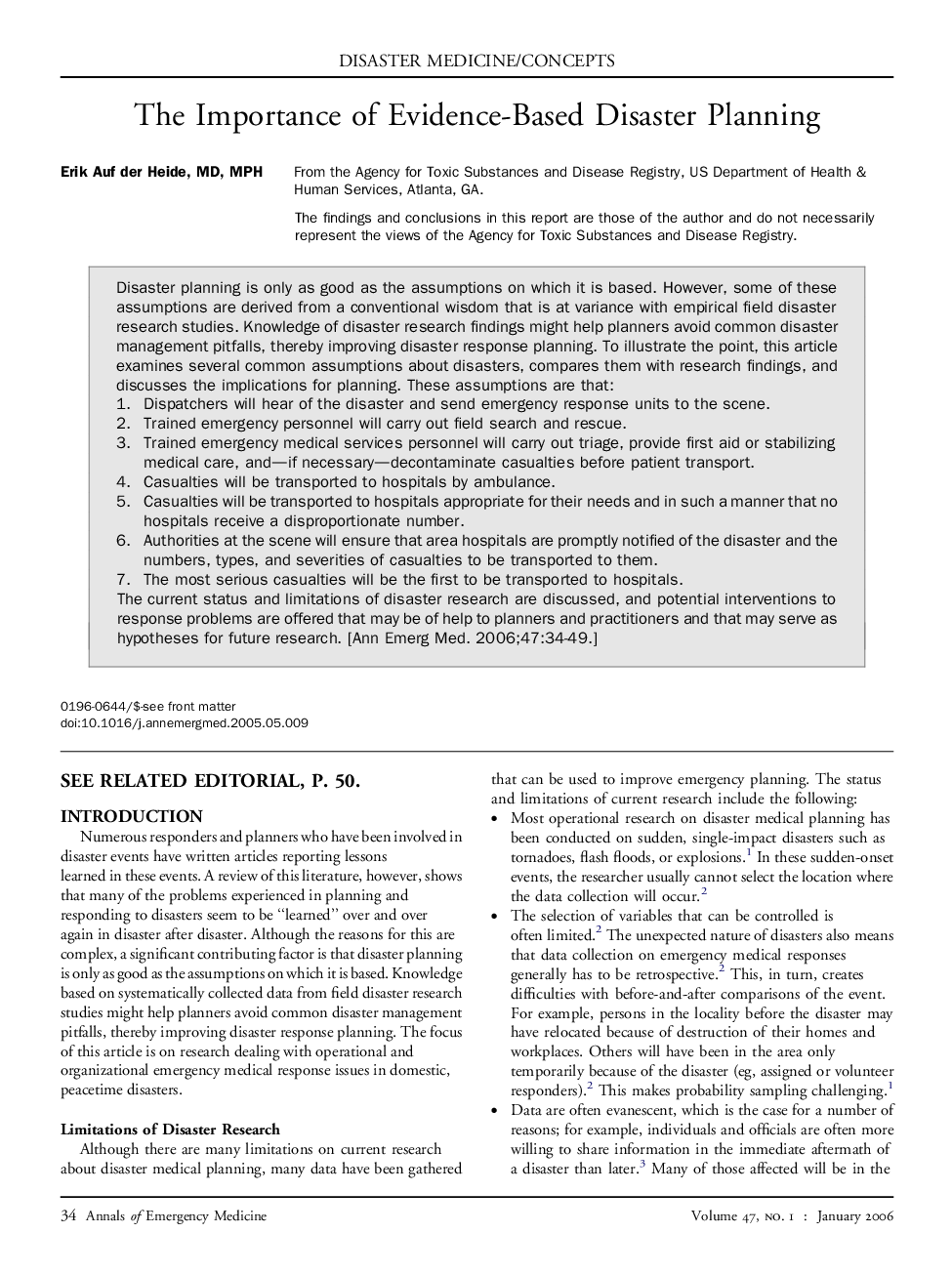| Article ID | Journal | Published Year | Pages | File Type |
|---|---|---|---|---|
| 3234093 | Annals of Emergency Medicine | 2006 | 16 Pages |
Disaster planning is only as good as the assumptions on which it is based. However, some of these assumptions are derived from a conventional wisdom that is at variance with empirical field disaster research studies. Knowledge of disaster research findings might help planners avoid common disaster management pitfalls, thereby improving disaster response planning. To illustrate the point, this article examines several common assumptions about disasters, compares them with research findings, and discusses the implications for planning. These assumptions are that:1.Dispatchers will hear of the disaster and send emergency response units to the scene.2.Trained emergency personnel will carry out field search and rescue.3.Trained emergency medical services personnel will carry out triage, provide first aid or stabilizing medical care, and—if necessary—decontaminate casualties before patient transport.4.Casualties will be transported to hospitals by ambulance.5.Casualties will be transported to hospitals appropriate for their needs and in such a manner that no hospitals receive a disproportionate number.6.Authorities at the scene will ensure that area hospitals are promptly notified of the disaster and the numbers, types, and severities of casualties to be transported to them.7.The most serious casualties will be the first to be transported to hospitals.The current status and limitations of disaster research are discussed, and potential interventions to response problems are offered that may be of help to planners and practitioners and that may serve as hypotheses for future research.
